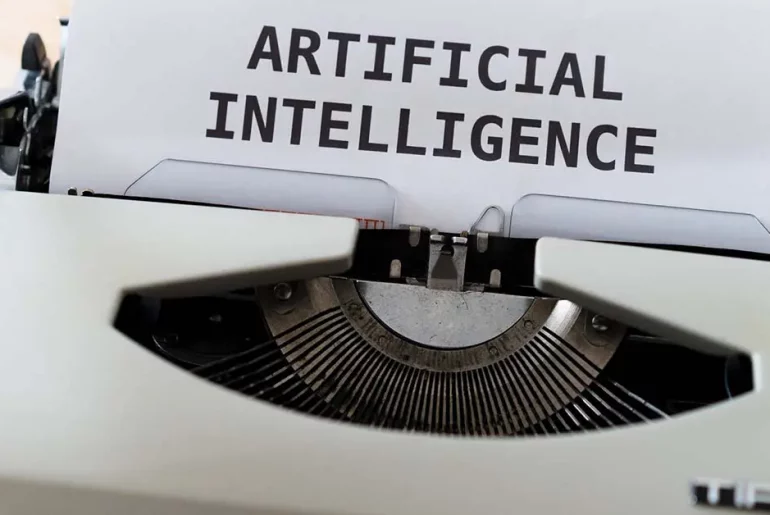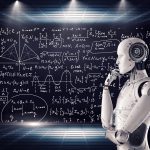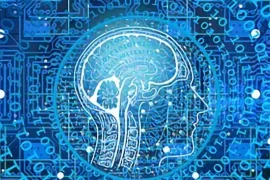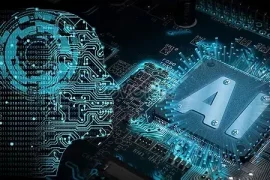The fourth industrial revolution is underway with technologies disrupting every sector. Artificial Intelligence, robotics, the Internet of Things (IoT), genetic engineering, and quantum computing are collectively influencing the products and services that are indispensable to the modern world. From best search results in Google to our online shopping behavior to AI-powered apps detecting the asymptomatic state of COVID-19 infection, AI is impacting every domain of our lives.
As technology advances, young talent is finding it difficult to choose the right career path. Tech experts claim AI is the future of jobs. The advancement of AI has circulated fears that it will take our jobs but research say otherwise. Automation can create millions of more jobs than it can displace as stated by The World Economic Forum which predicts AI may lead to a net increase of 58 million jobs.
Before we dive into the reasons AI will upgrade careers and the future of work, let’s start simple: what is AI?
What is AI?
John McCarthy, the late American computer scientist and founder of the discipline of AI, first coined the term artificial intelligence in 1956 during a summer workshop called the Dartmouth Summer Research Project on AI. AI is the ability of a computer program or a machine to mimic human intelligence and make smart decisions. It is the ability of computer systems to perform tasks normally requiring human intelligence, such as visual perception, speech recognition, decision-making, and translation between languages.
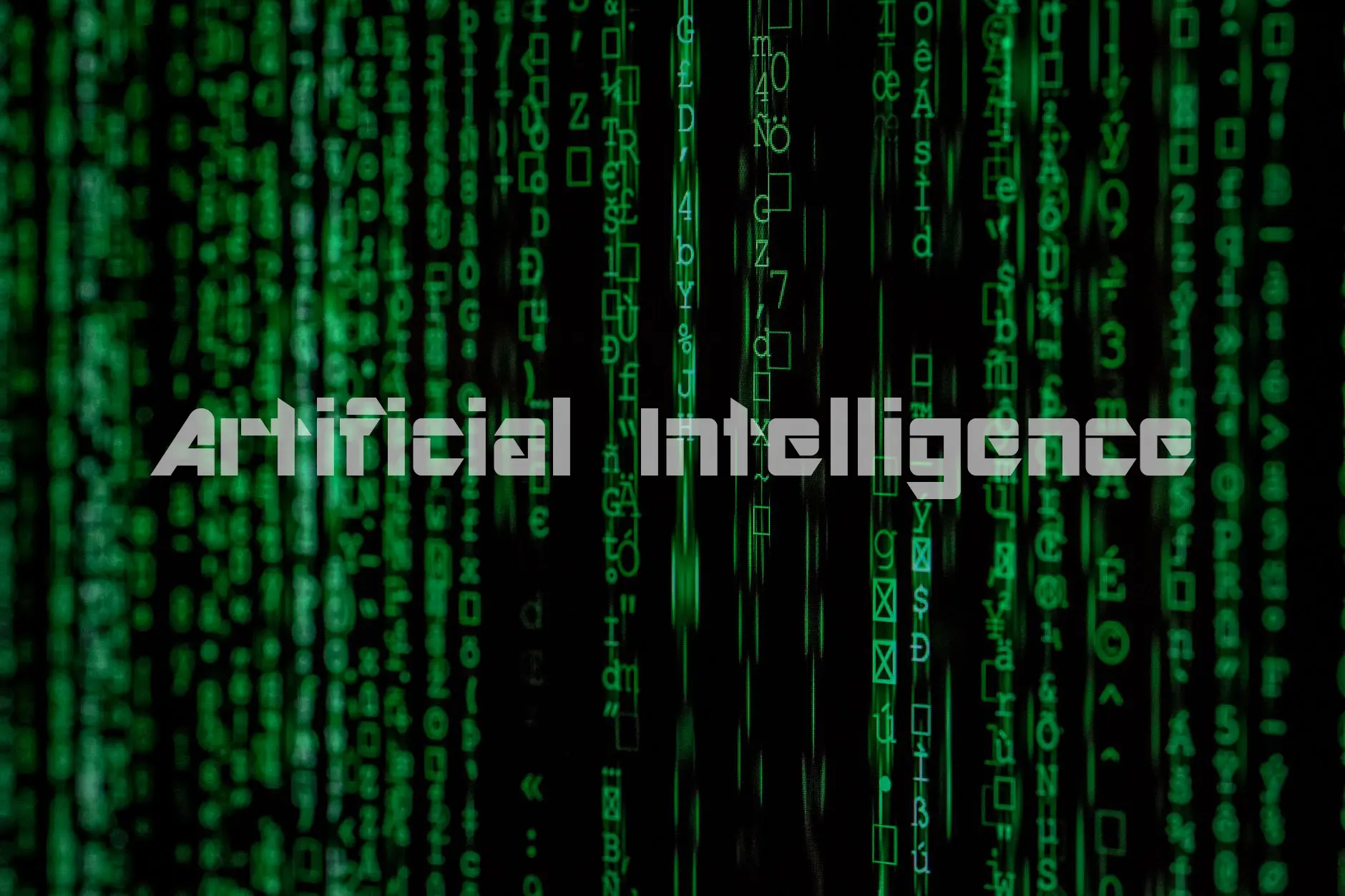
Some applications of AI impacting our everyday lives include speech recognition in mobile applications, customer service chatbots, biometrics applications, facial recognition devices, language translations, self-driving cars, intelligent robots, cyborg enhancements, and so on.
4 reasons why AI is the job of the future
AI sector has seen exponential growth over the past decade and so have career opportunities. Below we have explained 4 reasons why AI is the job of the future.
1. AI is a multi-billion dollar industry
IDC showed AI is forecasted to grow 17.4% in 2021 with its five-year CAGR to be 18.4% with revenues reaching $34.9 billion by 2024. Another statistics from Bank of America Merrill Lynch states the AI market will grow to $153 billion by 2020, comprising $83 billion for robotics and $70 billion for AI-based analytics. Businesses investing in AI are on the lookout for AI talent, creating limitless opportunities for those who want to pursue this cutting-edge technology as their career and become an AI engineer or specialist.
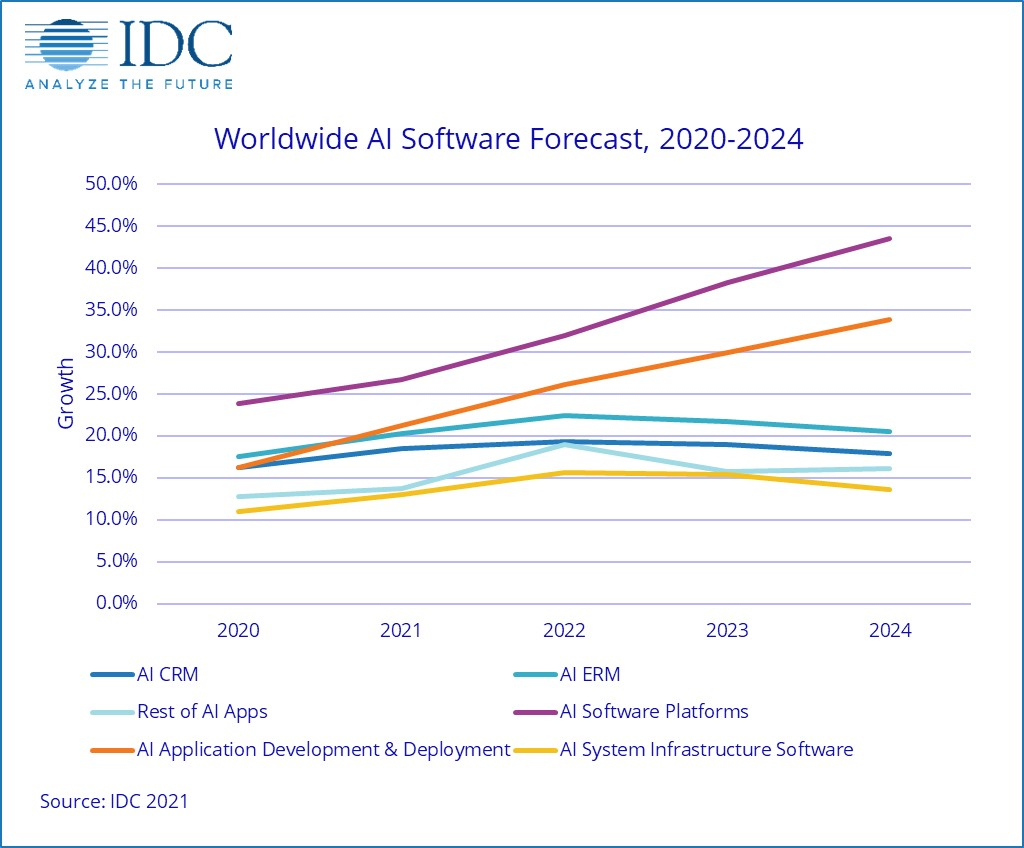
2. AI is becoming standard across industries
An increasing number of startups and established enterprises have integrated AI into their business. More than nine in ten leading businesses have ongoing investments in artificial intelligence with more than 50% of businesses reporting a boost in productivity after having implemented AI.
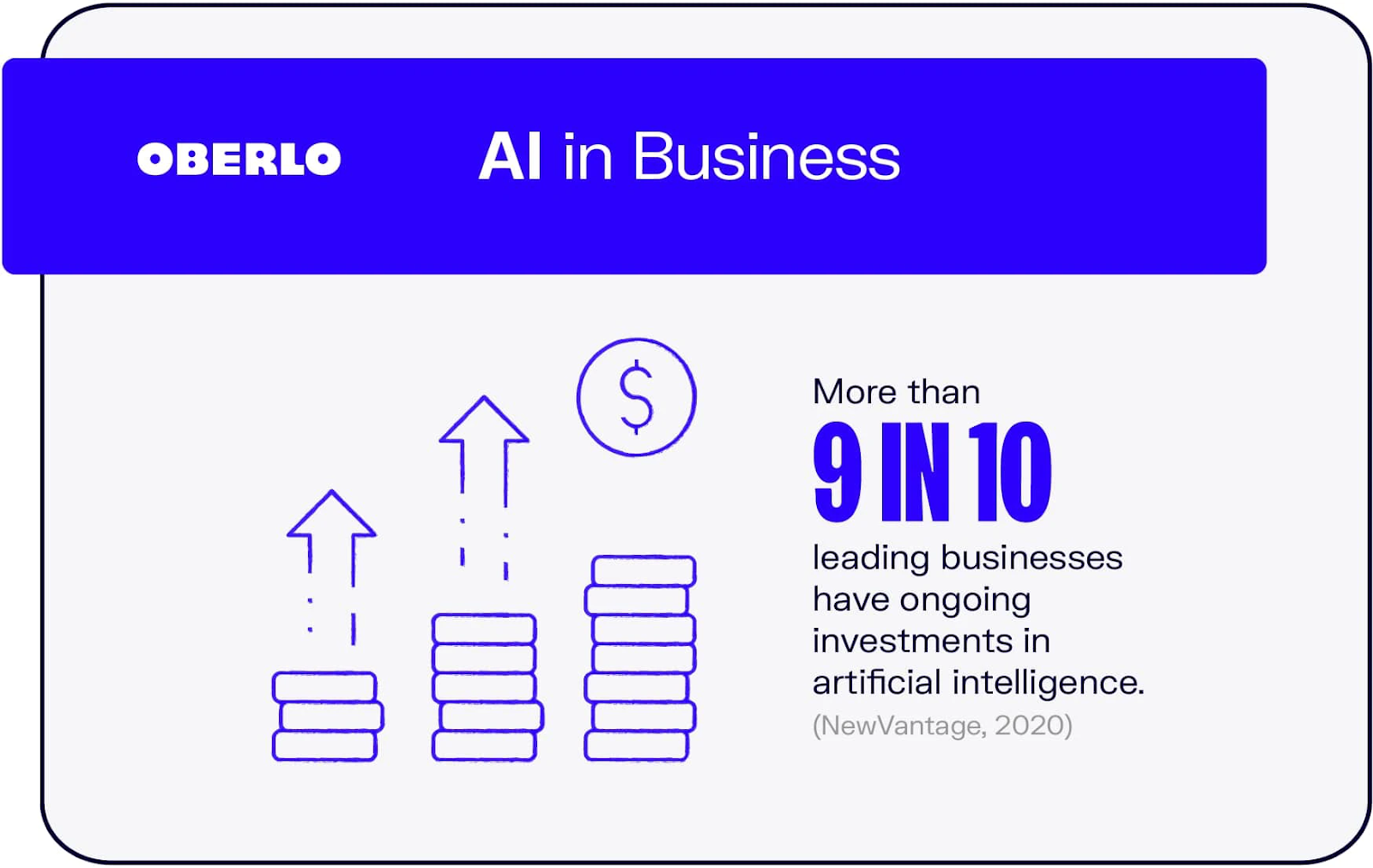
AI will disrupt healthcare along with retail, finance, customer service, sales, automotive, cybersecurity, e-commerce, aviation, and so on. One of the reasons for this is AI’s personalized service, either via digital assistance or through image-based targeted advertising. From task automation to creating a predictive model, AI is all set to fuel global economic growth.
3. Versatile AI career paths
AI is applicable in any industry. It’s not just limited to machine learning or data analytics and can be leveraged within a variety of industries including education, arts, healthcare facilities, government agencies, cybersecurity, and the military. This means that people with AI skills aren’t limited to one industry or particular job such as AI engineers or data engineers. Some of the top and versatile career paths in AI include research scientists, consultants, ethics officers, business analysts, architects, QA managers, data scientists, business intelligence developers, and more.
4. AI jobs are future proof
Businesses leveraging AI can produce more ROI, leading to more AI job talent demand with huge salaries and benefits around the world. 40% of respondents from Global 2000 organizations say they are adding more jobs as a result of AI adoption (Dun & Bradstreet 2019). The World Economic Forum 2018 Future of Jobs report says that 133 million jobs will be created as a result of AI-enabled automation by 2022. The average salary for machine learning engineers, the highest-paying AI job title of 2019, according to Indeed was estimated as $142,858.
Despite the ongoing advancements and opportunities for young talent, there’s an AI education and AI talent demand and supply gap. Most students are unaware of what AI is or its career opportunities. We need to democratize AI and create opportunities for students to engage with AI. Learning AI is challenging and requires advanced degrees and high-quality programs. Fuse Academics offers blended AI courses for all students and engineers from any background, enabling a world-class AI education, making it the one-stop solution for kickstarting a career in AI.
